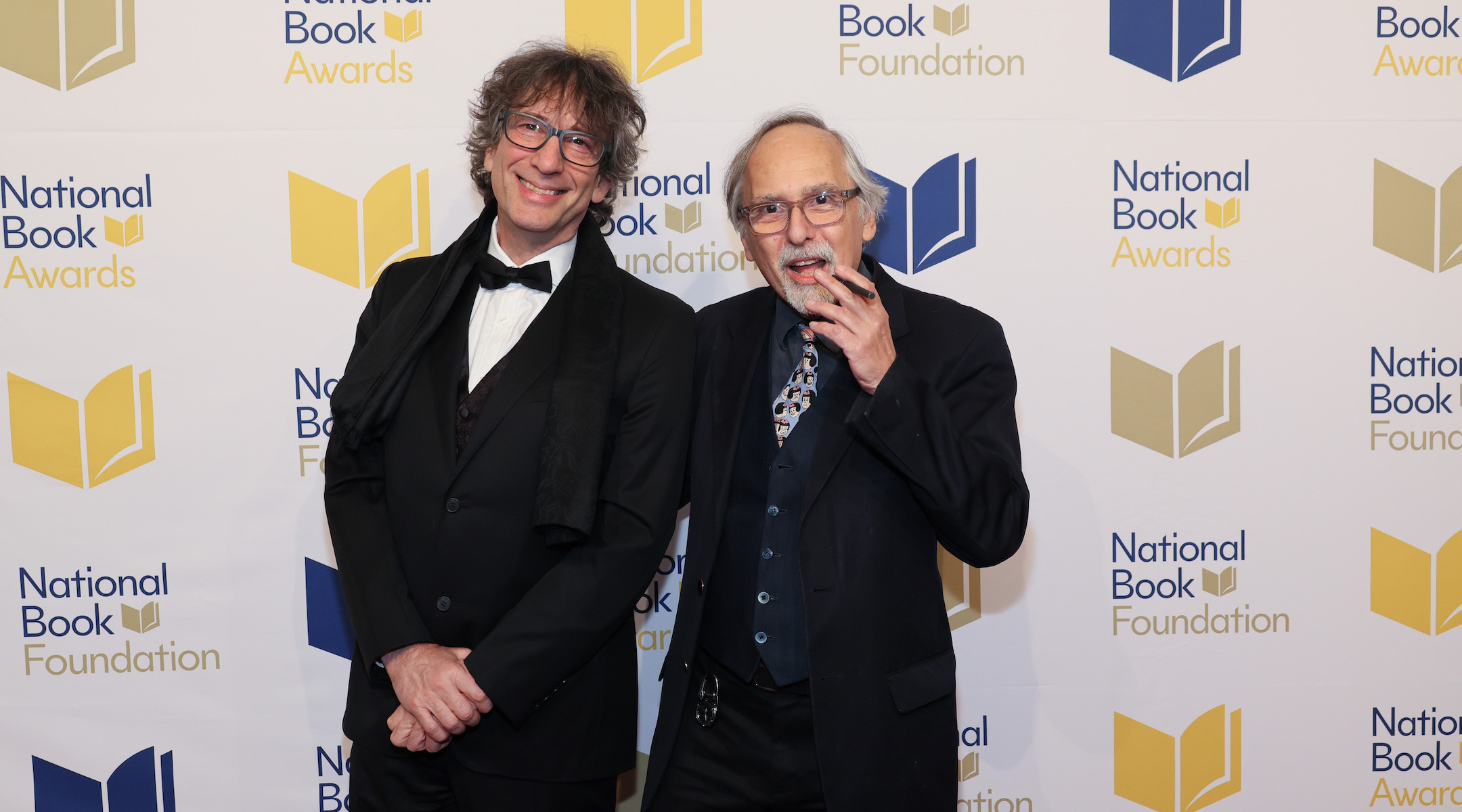(JTA) – At least one Jewish sponsor of one of the oldest and most prestigious literary awards in the United States is pulling out of Wednesday’s ceremony after learning that some of the nominated authors plan to issue a statement urging a ceasefire in the Israel-Hamas war, drawing yet another line in the sand at a cultural organization over Israel.
The controversy at the National Book Awards follows similar ones at the 92NY, Artforum and several book and film festivals at which statements and protests critical of Israel have resulted in institutional blowback and occasionally firings and resignations.
Zibby Owens, who leads the book publishing, bookstore and media company Zibby Books, announced her intent to pull out of the ceremony in a Substack post Tuesday. She wrote that a “source” had tipped her off that “all the nominees of the awards had gotten together as a block and decided to use their platform when winning speeches to promote a pro-Palestinian, anti-Israel agenda,” and said she wrote to the National Book Foundation expressing her concerns.
While saying “I don’t believe in censorship,” Owens wrote, “I wanted the NBF to prevent a bullying atmosphere where speeches could be used to intimidate based on religious views.” She specifically cited the phrases “Free Palestine” and “From the river to the sea” as ones that would be harmful to Jews, though she later told the Jewish Telegraphic Agency she did not know whether the nominees planned to use them.
After failing to receive these assurances from the foundation, she made the decision to pull her sponsorship. At least one other sponsor, Book of the Month, would not be attending the event but planned to continue to “support” it, according to The New York Times. Owens had just begun sponsoring the festival the year before but has donated in previous years.
The Times, speaking to at least one of the nominated authors, reported that they had planned to call for a ceasefire in the Gaza Strip during the awards ceremony. The author, fiction finalist Aaliyah Bilal, said the writers would stand behind a single person reading a statement, and that they wanted to be “sensitive to all of the antisemitism going on in this moment.” The National Book Foundation has sent a notice to the remaining sponsors and attendees alerting them to the possibility of political statements at the ceremony.
“I acted on the information I had been given,” Owens told JTA via email. “I had asked for an assurance that should any anti-semitic rhetoric surface that the NBF would have an action plan around that. None was forthcoming.” Owens also said she would have wanted more advance notice from the foundation about the protest, and an indication “that while political speech is tolerated, hate speech will not be.”
Owens is Jewish and was a recent “36 To Watch” honoree at the New York Jewish Week, a sister publication of JTA. Her decision was met with mixed reactions on her Substack.
“Pulling support from this event over a pro-Palestinian sentiment under the presumption that it would be antisemitic by default does not seem to me like an act of heroism,” Jewish comedian Josh Gondelman commented. “It feels like a withdrawing of solidarity from members of the literary (and human) community who are also experiencing real pain.”
Among the National Book Award finalists is nonfiction author and Palestinian human rights activist Raja Shehadeh, author of “We Could Have Been Friends, My Father And I: A Palestinian Memoir.” Shehadeh’s book is a portrait of his father, activist Aziz Shehadeh, an early proponent of Palestinian statehood and a moderate voice within Palestinian politics who was stabbed to death in 1985; Raja has long maintained that Israeli police failed to thoroughly investigate the murder.
Owens said she didn’t object to Shehadeh’s memoir being shortlisted. “The judges make decisions based on the quality of the work, which is as it should be,” she said. A handful of other finalists, including Bilal and children’s author Huda Fahmy, were nominated for books about Islam.
Calls for a ceasefire in Gaza have grown among artists, activists and some politicians as Israel’s continued bombardment of the region, more than a month after the Hamas massacre of 1,200 Israelis, has claimed thousands of lives. International groups have called the situation a humanitarian crisis, while the Israeli military has said it is singularly focused on dismantling Hamas.
Last year’s National Book Awards bestowed a special honor on Jewish “Maus” author Art Spiegelman, whose graphic Holocaust memoir was in the middle of a nationwide book ban controversy.
JTA has documented Jewish history in real-time for over a century. Keep our journalism strong by joining us in supporting independent, award-winning reporting.






